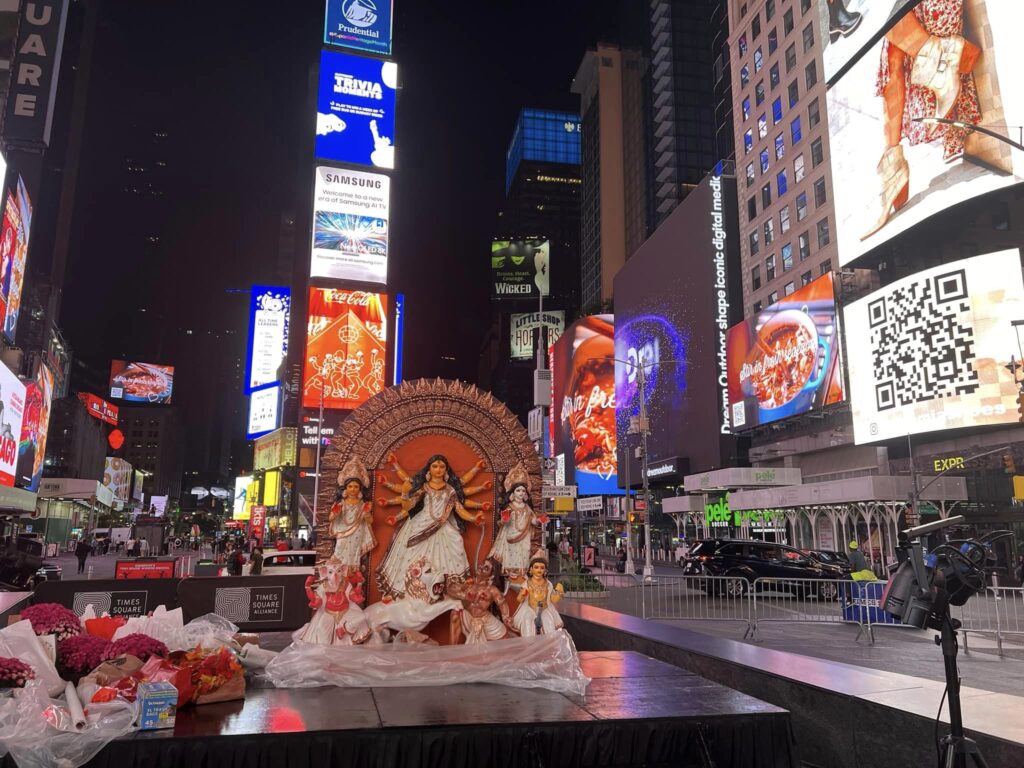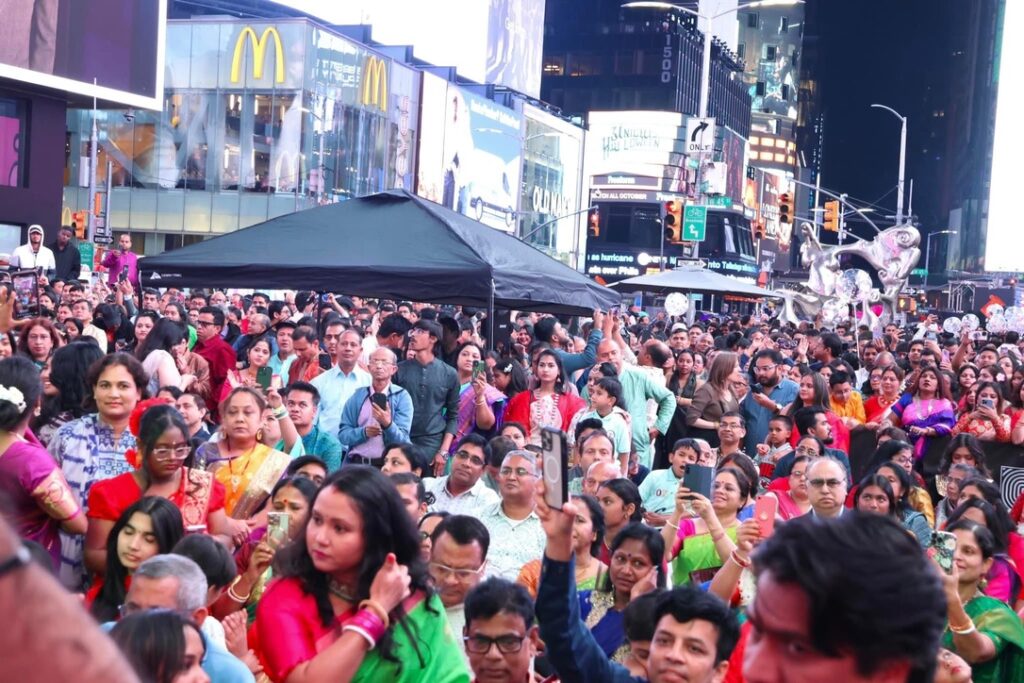
The Times Square Durga Puja can align with responsible business priorities to ensure the event is sustainable, inclusive, and impactful. These priorities help the celebration contribute positively to the local community, the global audience, and broader sustainability goals. Below are the key responsible business priorities for such an event:
1.Environmental Sustainability
•Eco-Friendly Materials: Use biodegradable and sustainable materials for decorations, idols, and infrastructure, reducing waste and environmental harm.
•Waste Management: Implement effective waste segregation and recycling systems to minimize landfill contributions.
•Energy Efficiency: Use renewable energy sources (e.g., solar power for lighting) or energy-efficient equipment to reduce the event’s carbon footprint.
•Water Conservation: Manage water usage effectively, especially during rituals or cleaning processes.

2. Cultural Preservation
•Promoting Local Artisans: Source decorations, idols, and crafts from traditional artisans to preserve cultural heritage and support livelihoods.
•Showcasing Indian Culture: Use the platform to promote Indian art, music, dance, and literature while educating a global audience about the richness of the Durga Puja tradition.
•Inclusive Storytelling: Ensure the narrative emphasizes universal themes of empowerment, victory of good over evil, and cultural harmony.

3. Community Engagement
•Inclusive Participation: Engage diverse communities, including locals, tourists, and the Indian diaspora, to foster cross-cultural understanding.
•Support for Marginalized Groups: Provide opportunities for underprivileged or marginalized groups, such as women artisans or small-scale vendors, to participate and benefit economically.
•Volunteering and Charity: Incorporate social impact initiatives, such as supporting local charities, food drives, or donating a portion of proceeds to community development.

4. Economic Responsibility
•Fair Wages and Ethical Practices: Ensure fair compensation and ethical treatment of all workers, performers, and contributors.
•Support Small Businesses: Partner with local vendors for food, crafts, and services to boost the local economy.
•Affordable Access: Ensure ticket pricing (if applicable) is affordable, allowing a broader audience to participate.

5. Inclusive Leadership and Gender Equality
•Empowering Women: Ensure women play prominent roles in event planning, rituals, and performances to emphasize gender equality.
•Diversity in Leadership: Promote diversity in the organizing committee, representing various ethnic, cultural, and social groups.

6. Transparent Governance
•Ethical Fundraising: Maintain transparency in sponsorships and donations to ensure accountability.
•Stakeholder Engagement: Involve key stakeholders, including community leaders, local authorities, and business partners, in decision-making processes.
•Impact Reporting: Measure and report the event’s social, economic, and environmental impact, aligning with global sustainability standards.

7. Education and Awareness
•Promoting Sustainability Awareness: Use the platform to educate attendees about sustainable practices and environmental conservation.
•Highlighting SDGs: Tie the celebration to global SDG awareness, emphasizing how cultural events can support development goals.

Conclusion
The Times Square Durga Puja can set a global example of responsible business practices by focusing on sustainability, inclusivity, and community engagement. By prioritizing environmental responsibility, fair economic practices, and cultural preservation, the event can create lasting positive impacts while celebrating tradition in a modern context.

